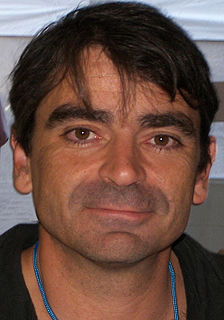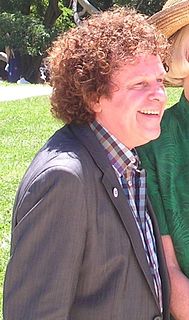A Quote by Joseph O'Neill
Novel-writing is a bit like deception. You lie as little as you possibly can. That's the way I do it, anyway.
Related Quotes
There are two different ways of writing a novel. The first I call the traditional father way, when the novelist slightly situates himself or herself above the text and knows what each and every character is going to do. It's a bit like engineering. I've never felt close to that tradition. I like the second way, which relies a bit more on intuition.
In '94, I started writing a novel about an enormous terrorist act that destroyed the United States. The novel takes place twenty years after this destruction, with all the stuff that we're dealing with now - a dirty war, the disappeared, the concept of terrorism. Anyway, 9/11 happened some years into the process, and I was like, OK, I don't have a novel.
Something happens between a novel and its reader which is similar to the process of developing photographs, the way they did it before the digital age. The photograph, as it was printed in the darkroom, became visible bit by bit. As you read your way through a novel, the same chemical process takes place.
I've been thinking a lot about why it was so important to me to do The Idiot as a novel, and not a memoir. One reason is the great love of novels that I keep droning on about. I've always loved reading novels. I've wanted to write novels since I was little. I started my first novel when I was seven.I don't have the same connection to memoir or nonfiction or essays. Writing nonfiction makes me feel a little bit as if I'm producing a product I don't consume - it's a really alienating feeling.







































